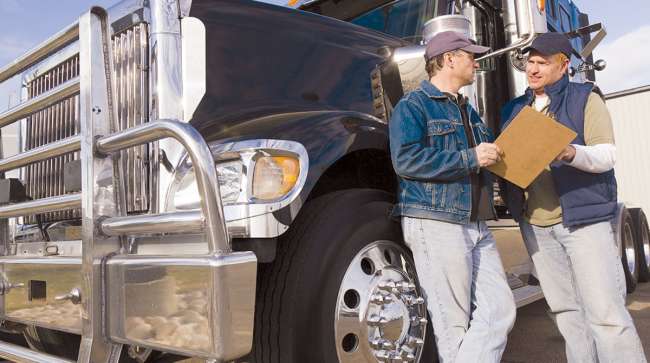Staff Reporter
W.Va. Advances Bill Creating Standards for Independent Contractor Classification

[Stay on top of transportation news: Get TTNews in your inbox.]
The West Virginia Legislature has advanced a bill that provides clarity for determining whether a worker is an independent contractor or an employee, marking a positive development for the trucking industry.
The Senate passed the bill, titled “Relating to West Virginia Employment Law Worker Classification Act,” on March 11. The legislation is expected to advance to Gov. Jim Justice’s office.
According to the bill, a person shall be classified as an independent contractor if he or she signs a written contract with a principal stating the principal’s intent to engage the services of the person as an independent contractor. Beyond that, the contract would contain acknowledgments that the worker is not going to be treated as an employee, will not be provided workers’ compensation or unemployment compensation benefits and is obligated to pay all applicable income taxes.
Additionally, the contract would state the worker is responsible for the majority of supplies and other variable expenses that he or she incurs when performing the contracted services, unless the expenses are for nonlocal travel or are reimbursed under an express provision of the contract. The person would provide his or her services through a business entity such as a limited liability company or a sole proprietorship registered properly with state or local law.
Thank you @SpeakerHanshaw for taking time to meet with truckers at the Capitol today! #StopLawsuitAbuse https://t.co/DJqNpGt4g8 pic.twitter.com/x1yodiRpAN — American Trucking (@TRUCKINGdotORG) March 9, 2021
Trucking industry leaders cheered the passage of the bill, calling it an important step in protecting the rights of independent contractors to earn a living and stopping lawsuit abuse.
“The trucking industry literally keeps our economy moving, employing 38,000 West Virginians across our state,” West Virginia Trucking Association President Traci Nelson said. “With this legislation, our lawmakers have put down a marker: Trial lawyers can’t keep using the civil justice system to line their own pockets at the expense of middle-class jobs, small businesses and highway safety.”

Nelson
The bill outlines specific standards for determining if someone is an independent contractor. The person would be considered an independent contractor if he or she satisfies three or more of the following criteria:
• Except for an agreement with the principal relating to final completion or final delivery time, the person has control over the amount of time personally spent providing services.
• Except for services that can only be performed at certain locations, the person has control over where the services are performed.
• The person is not required to work exclusively for one principal unless a law prohibits the person from providing services to more than one principal or a permit the person is required to maintain limits the person to working for only one principal at a time.
• The person is free to exercise independent initiative in soliciting others to purchase his or her services.
• The person is free to hire employees or to contract with assistants to perform all or some of the work.

Fleets are investing in tech-based safety tools that inform and forewarn potential risk. But how do they condition and prepare drivers to respond to safety alerts? Find out as the RoadSigns Team speaks with Tom DiSalvi, VP of safety at Schneider National, and Charlie Mohn, director of product innovation at Drivewyze. Hear a snippet, above, and get the full program by going to RoadSigns.TTNews.com.
• The person cannot be required to perform additional services without a new or adjusted contract.
• The person obtains a license from the principal to use any workspace of the principal to perform the work for which the person was asked to do.
• The principal has been subject to an employment audit by the Internal Revenue Service, and the IRS has not reclassified the person to be an employee or has not reclassified the category of workers to be employees.
• The person is responsible for maintaining and bearing the costs of any required business licenses, insurance, certifications or permits required to perform the services.
The legislation states all workers who do not satisfy these criteria will be classified as employees. The bill also notes that nothing presented in this section of the legislation requires a principal to classify a worker who meets these criteria as an independent contractor; the principal is free to hire the worker as an employee.
“Clarity in a worker’s classification allows businesses to comply with applicable laws, provides workers with certainty as to their benefits and obligations, and minimizes unnecessary mistakes, litigation, risk and legal exposure laws concerning workers’ compensation,” the bill states.

Spear
Trucking industry representatives indicated other states should follow West Virginia’s example in establishing protections for independent contractors.
American Trucking Associations President Chris Spear said, “State lawmakers across the country are now waking up to the fact that the perversion of wage and hour classification lawsuits into a profit center for trial lawyers hurts a state’s business climate, kills good-paying jobs and raises the cost of living for everyone while also inhibiting safety improvements.”
Want more news? Listen to today's daily briefing below or go here for more info:

